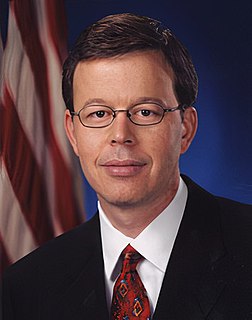A Quote by John Wooden
In my opinion, being an effective leader requires being an effective listener. The most productive leaders are usually those who are consistently willing to listen and learn.
Related Quotes
Empathically accurate perceivers are those who are consistently good at 'reading' other people's thoughts and feelings. All else being equal, they are likely to be the most tactful advisors, the most diplomatic officials, the most effective negotiators, the most electable politicians, the most productive salespersons, the most successful teachers, and the most insightful therapists.
I would assert that highly effective leaders are made more than they're born. Every leader I know who's been highly effective has worked hard at it, and they've been students of it. The more you're a student of leadership, the more you figure out what works for you and the more effective you're going to be.
An effective leader is willing to think about what's happening and how to understand what's going on. Facilitating flow and making others more conscious of it, the leader communicates an awareness of process to the group, making them more aware of their energies and options. One important principle is to keep track of who has not spoken. ... It's also important to notice when people do speak out but are not heard. Effective leaders practice patience, reminding themselves to wait and observe, remembering that there's always more going on in a group than we're consciously aware of.
Trust is perhaps the most critical single building block underlying effectiveness. Without trust leaders do not have followers. Without trust, leaders are impotent despite great rhetoric or splendid ideas. Trust rests on the belief among followers that the leader is transparent: What you see is what there is. Trust means followers believe there is no duplicity; no manipulation just to satisfy the leader's ego. Very simply: The effective leader is transparent; that's why that person is trusted.




































